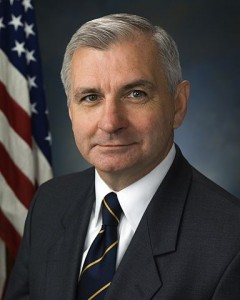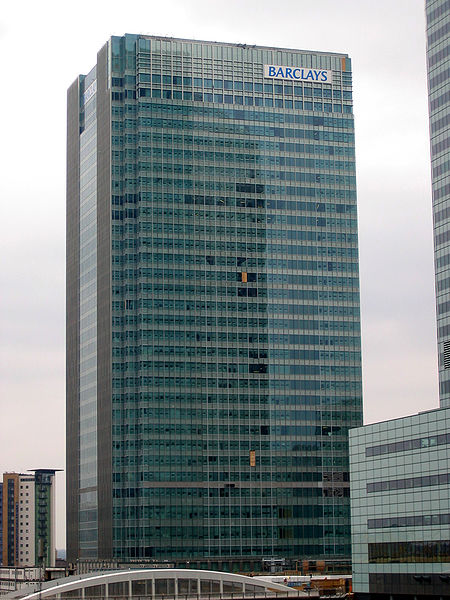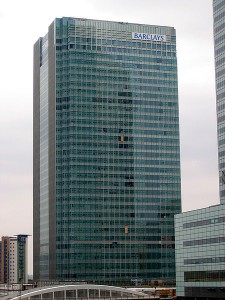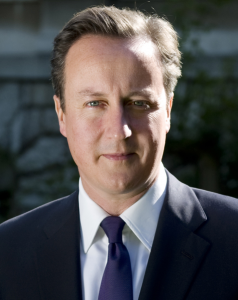
Just over a week ago, the British and American governments announced the largest fine in history levied against Barclays PLC, just under half a billion dollars. The fine agreed to ignore criminal charges against Barclays itself, but current and past employees were not exempt. Well, after a letter from Democratic lawmakers (including Rhode Island’s Sen. Jack Reed) to the U.S. Justice Department and regulatory agencies urging criminal charges, that may well be in the works. According to The New York Times, Barclays traders may be among those slapped with criminal charges. Bloomberg reports that those charges could come as soon as September.
The City of Baltimore already filed a lawsuit back when this rate-rigging scandal broke. Now it comes to light that the attorney generals of New York and Connecticut are working together to investigate Wall Street banks over the scandal.
New York attorney general Eric Schneiderman was considered the most high-profile crusader against Wall Street excess until he was co-opted by the pro-Wall Street administration of Barack Obama. That resulted in the $25 billion settlement with America’s largest loan servicers, who were utilizing automated robo-signing to fraudulently foreclose on American homes. Prior, Mr. Schneiderman led a group of dissenting attorney generals who refused to accept the Dept. of Justice’s settlement, believing the banks deserved greater punishment. When he folded, the virtually all of the attorney generals fell into line with the Justice Department (Rhode Island’s attorney general Peter Kilmartin was with the Justice Department from the get-go).
Libor (London Interbank Offered Rate) is an average of the interest of borrowing for London’s banks. It is set by all of the banks submitting to their trade organization (the British Bankers’ Association) the rate they are borrowing at. These rates are then averaged and the average is declared. That is used to set interest on roughly $500 trillion in securities, and 45% of all U.S. mortgages. In the wake of the 2008 Global Financial Crisis, Libor became a measure of banks’ health as other standard measures became suspect and unreliable. In this case, Barclays has admitted to artificially manipulating rates downward.
This means while the interest the average consumer paid on their mortgage was lower, a state or municipal treasury or a large charity that had savings linked to Libor also saw lower returns. As did lenders who sold mortgages bundled into “residential backed mortgage securities”. So while the average person on the street might feel slightly good about the banks’ malfeasance working out for them, states and lenders are certain to feel quite angry.
Is It Time for the White House to Fight the Banks?
The common impetus behind both the Tea Party and Occupy Wall Street appear to have been that Wall Street got away with collapsing the world economy and over a trillion dollars in taxpayer money. And they never faced a single criminal charge.
The Libor scandal seems to be changing that. The British government announced plans to make it the government with the toughest regulations out of any economic center; the City of London (separate from Greater London) is the epicenter of Western capitalism.
Americans already despise Wall Street for its part in the collapse (Wall Street remains the institution most blamed for the bad economy). Wall Street banks, who strongly backed President Barack Obama in 2008, have shifted their financial support almost entirely to Republican challenger Mitt Romney. Barack Obama has mostly played as the banks’ best friend, his bipartisan so-called JOBS Act passed earlier this year further deregulated Wall Street (Rhode Island’s Senators voted against the act, whereas our Representatives voted for it).
But the Libor scandal may be a chance to put right the wrongs done by the administration and the U.S. government in not punishing the banks following the Global Financial Crisis. One hopes that President Obama would do so because it is the right thing to do. However, since the moral calculus has not appealed to this president in the past, perhaps the political calculus will. This is a rare case of good politics and good policy aligning.
With the big banks having cut the President loose, he does not need to worry about angering potential donors; indeed, charging bankers for the very real crimes they have committed seems likely to energize those who have long feared the President is a stooge of Big Banks. Furthermore, the Libor scandal (and the money-laundering over at HSBC) has proven beyond a doubt that the financial system cannot be allowed to police itself. When given the choice between theft and honesty, banking culture is so toxic they will praise theft before they stoop to honesty.
Unfortunately, Republican obstructionism is undoubtedly assured to block any chance of enacting tough new rules through legislation. And conservative litigation as regulators write new rules is also likely to prevent any real strengthening of the oversight under the flawed Dodd-Frank reform. This means all the government can do is press charges. Indeed, this very public action may be preferable from a political stance; the sight of bankers in court is likely to please many of the hundreds of American families who have wound up in foreclosure proceedings at the hands of such reckless prophets of our financial system.



